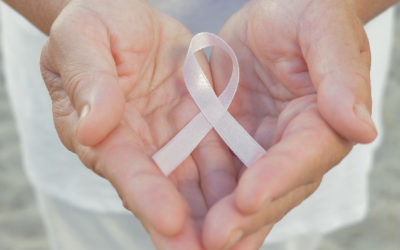Is it appropriate to tell someone to “fight the cancer?”
Is it appropriate to tell someone to “fight the cancer?" by S. Terry Kraus, M.D. All of us are aware that Senator John McCain has an aggressive malignant brain tumor. Many of his well-wishers in Congress and in the public have been encouraging him to...
A “Pen” that might detect cancer during surgery in 10 Seconds
A “Pen” that might detect cancer by S. Terry Kraus, M.D. There is now a hand-held device that might help surgeons determine malignant from healthy tissues when operating. It is called the MasSpec Pen. It has now completed initial research. It may be...
Dark Hair Dye and Chemical Relaxers
Her straighteners and dye to dark and hair may cause an elevated risk of breast cancer. 4,285 African-American and Caucasian women were followed for this study. African-American women who used dark hair dye had a 51% increased chance of breast cancer compared to African-American women who did not. Occasional women who used chemical relaxers had a 74% increase of breast cancer compared to Caucasian women who did not use a relaxers. Also, the breast cancer risk for Caucasian women who regularly dyed there hair dark shades increased the risk of breast cancer. There also seems to be an increased risk of lymphomas and multiple myeloma in women who use dark dyes.
Radiology and jargon
There are some phrases that are used, particularly with radiologist, but have always driven me crazy. Some of these are “diagnostic for,” “consistent with,” “concerning for,” as well as, “possibly.”
Cancer and “spare tires” in women
A most recent study presented at the 2017 European Society for Medical Oncology has shown that women who have a “spare tire” they are greater risk for lung cancer and gastrointestinal cancers. The study was done in Denmark. There were 5,855 women in this study. They had been followed for at least 12 years. Central obesity showed an increased risk for lung and GI cancers. Those who had “spare tires” had an increase in their diet of simple carbohydrates such as potatoes, wheat, rice and corn. This does not mean that simple carbohydrates should not be part of your diet, they should. However, a well-balanced diet is important.
Pregnancy After Breast Cancer
Pregnancy after breast cancer is not necessarily linked to recurrence of the breast cancer. This was discussed at the 2017 annual meeting of the American Society of Clinical Oncology. In a paper presented by Dr. Lambertini, women younger than 50 years of age with breast cancer who had not spread were followed. Of 1207 patient’s, 333 became pregnant. The time from diagnosis to conception was 2.4 years. The follow-up was 10 years. There was no difference in survival. Of this group 40% had “poor prognostic factors.”
The Top Killer In Breast Cancer
Women and their 40s and 50s are experiencing heart failure and other heart complications after treatment with chemotherapy, and radiation. This was presented at the 13th Annual Conference of The Hematology/Oncology Pharmacy Association. If women received cardiac prevention within 2 months after cancer treatment of heart complications many could be prevented or reversed.
What to Look For in a Cancer Surgeon
An editorial, by Dr. Markman, printed in Clinical Oncology, discussed “Complex Cancer Surgery: A Complex Conversation” in 2016. A cancer patient should be aware, if possible, of the quality indications/experience of surgeon and the anesthesia staff, operating room staff and intensive care unit support area. Also, all side effects and complications should be carefully explained to the cancer patient. Psychological and social factors should also be explored, as well. This would mean that an active social service and psychologist be part of the treatment team.
Opioid Use Among Cancer Survivors
8,601 adults with at least 5 years after a cancer diagnosis were matched with 8,601 individuals without a prior cancer diagnosis. These “matched pairs” in an article from the University of Toronto, published in Cancer, 2017 determined that the narcotic prescribed to cancer survivors was significantly higher than non-cancer survivors. Does this mean that cancer survivors who rely on narcotics were “addicted”? Perhaps. But it is more likely that cancer survivors R left with chronic, sometimes severe pain for the rest of the life. The physician’s taking care of cancer survivors should be aware this and empathetic to cancer survivors needs.
Prostate Cancer and Prostate-Specific Antigen (PSA)
In 2008 the United States preventative Services Task Force determined that obtaining a PSA did not influence the survival rate. This was done by following the men who did not have PSA versus men who had a PSA. However, the study was flawed. 90% of the men who did not have PSA initially had PSA testing during the study. If they had suspicion of recurrence, as determined by elevated PSAs and perhaps further workup, they were effectively treated. Thus, it was not possible to determine whether the PSA screening reduced prostate cancer deaths.










